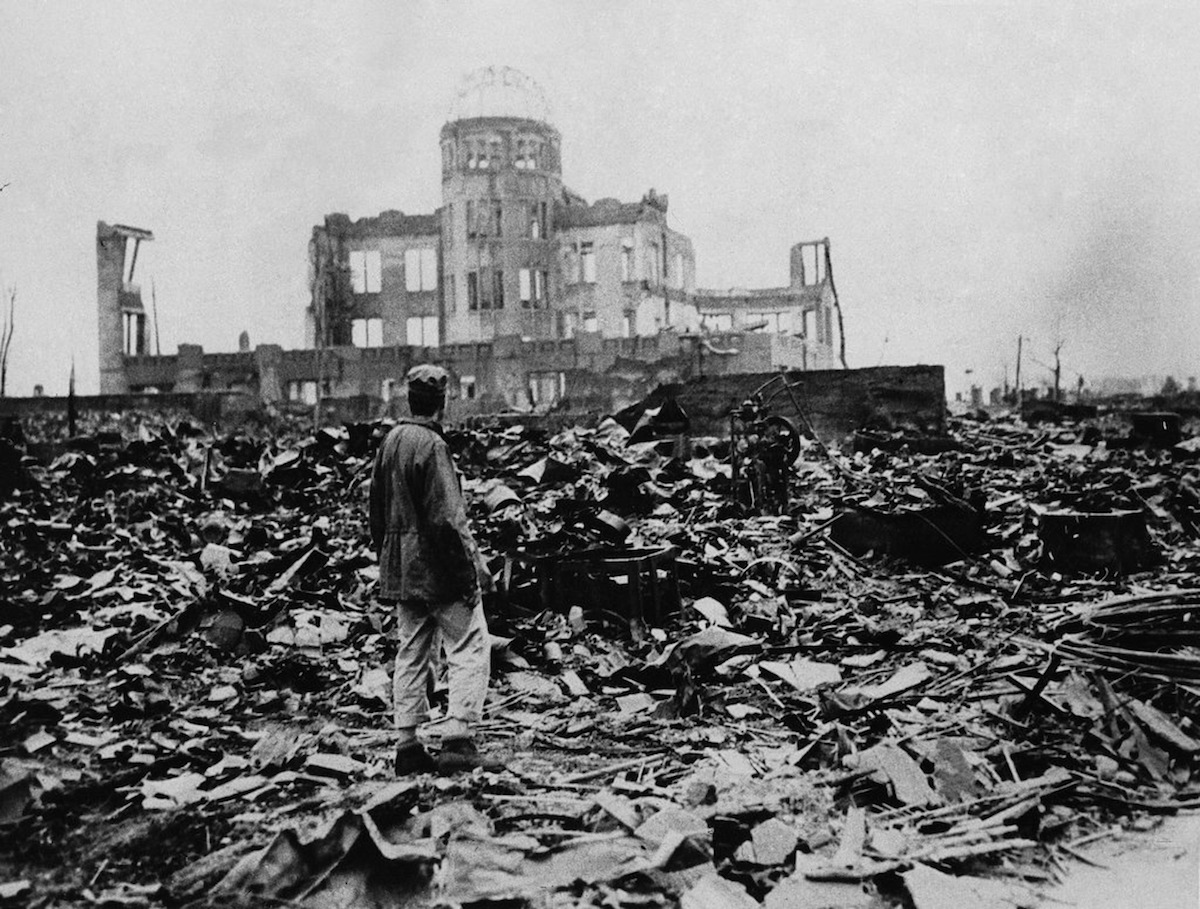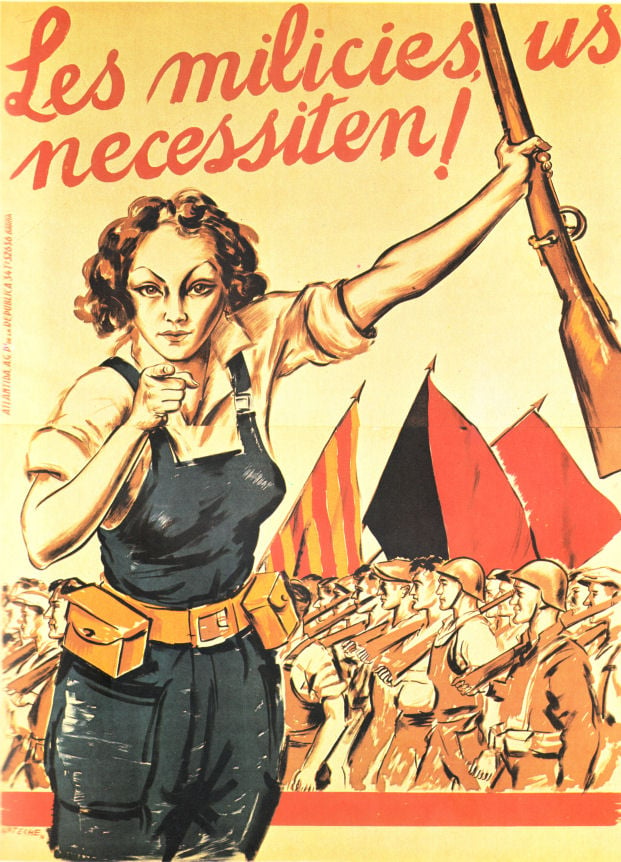- cross-posted to:
- workingclasscalendar
stahmaxffcqankienulh.supabase.co
- cross-posted to:
- workingclasscalendar
U.S. Nukes Hiroshima (1945)
Mon Aug 06, 1945
Image (NSFW):

Image: A lone man looking at a huge expanse of ruins left by the explosion of the atomic bomb on August 6th, 1945, in Hiroshima [buzzfeednews.com]
On this day in 1945, the U.S. military dropped a nuclear bomb on Hiroshima, instantly killing at least 80,000 people - mostly civilians - and tens of thousands more over the following weeks. The U.S. censored images of the bombing until 1952.
Eye-witness accounts of the bombing’s aftermath depicted a kind of apocalyptic horror: Father Wilhelm Kleinsorge, a German Jesuit priest, encountered a group of soldiers whose “faces were wholly burned, their eye-sockets were hollow, the fluid from their melted eyes had run down their cheeks… Their mouths were mere swollen, pus-covered wounds, which they could not bear to stretch enough to admit the spout of the teapot.”
Dr. Michihiko Hachiya, a survivor, spoke of “streetcars were standing and inside were dozens of bodies, blackened beyond recognition. I saw fire reservoirs filled to the brim with dead bodies who looked as they had been boiled alive”.
President Harry Truman made the case to the public that the bombings of Hiroshima and Nagasaki as a necessary and humanitarian means of forcing Japan’s surrender. This view was not held, however, by military commanders or leftist American dissidents.
Once American forces had Japan under military control, they imposed censorship on many images related to the U.S. bombing campaign. Among the images banned was a picture of a partially incinerated Nagasaki child, taken by Japanese photographer Yōsuke Yamahata. These restrictions were not lifted until 1952.
Among the first Americans to denounce the bombing were socialists such as the Trotskyist James P. Cannon, who publicly denounced the use of nuclear weapons as “an unspeakable atrocity”.
The dissent of military commanders was not public, however. In 1950, Admiral William Leahy, Truman’s chief of staff, wrote: “The use of this barbarous weapon at Hiroshima and Nagasaki was of no material assistance in our war against Japan”. In his memoirs, President Eisenhower, then General of the Army, confessed that “dropping the bomb was completely unnecessary”.
- Date: 1945-08-06
- Learn More: www.wsws.org, en.wikipedia.org, www.dukeeastasianexus.com.
- Tags: #Terrorism.
- Source: www.apeoplescalendar.org
By no means do I wish to glorify or excuse the deaths of tens of thousands of civilians, but this take on what is basically the final act of WW2 omits a truly MASSIVE amount of context. As in, like, basically all of the context.
Having deep and incisive discussions on these topics is good and important, but the political commentary here isn’t terribly historically coherent. Not to mention: regardless of whether or not Ike himself thought the strikes were justified and necessary post-hoc, pretty much all of the US military leadership at the time were concerned about an absolutely massive clusterfuck quagmire of an occupation effort that would have made occupied Nazi Germany look like traipsing through the Coney Island by comparison. And that’s just a tiny, tiny fraction of the context and knowledge those people had at the time that led them to the decision to use those atomic weapons.
deleted by creator
That’s a … bit of a stretch in my opinion to make atomic bombing of Hiroshima and Nagasaki to be about working class
Especially since the Japanese government were fascist who would literally hunt down and assassinate anyone having to do with socialism.
I would normally try and make attempts to distinguish between a people and it’s state, but the history of empirical Japan basically makes that impossible. The citizen population were just as bloodthirsty as the state leaders, throwing riots because they didn’t think the military were doing enough war crimes in China.
Imo it’s hard to feel bad for the working class of Japan when 30k of the people killed by the blast were Koreans being used as slave labour.
Hiroito was never judged by those crims. I suspect that fight against fascism was not, and never has been, a priority of the U.S.
The US intention was clearly to commit mass murder of civilians (most of them members of the working class): They threw the bomb in the city center, not in the few nonstrategic military barracks nor in the military industries, and less than 10% of the deaths were militaries.
See, by example, https://www.lawfaremedia.org/article/hiroshima-and-myths-military-targets-and-unconditional-surrender
Do you… think we bombed *only CEO’s and billionaires…? Most of the dead were civilians.
edit: clarification
I don’t know who is ‘we’ here but anyway.
Yes I do in fact. Atomic bomb doesn’t care about your social status, it kills anyone in radius. Doesn’t matter if you’re a worker or a CEO, you’re dead. The bombing wasn’t even motivated by that at all, it wasn’t like “bwahaha let’s kill poor people! But let’s spare rich and CEOs”. It had nothing to do with that. In fact, if there would be a city of billionaires and CEOs, it’d make more sense to bomb them and cause chaos in the companies they own.
As I said I guess you can stretch it that many workers died and that’s true but as the other comment said, the context is what’s important here
“We” is my country, the US.
I added clarification. The point wasn’t the socioeconomic status of the people who died, it’s the fact that we used devastating nuclear weapons on 2 cities and the majority of casualties were civilians. That’s it.
Damn these military CEOs and billionaires
Find out phase.
It’s weird to frame this about “working class”.
Terrorism 🤣🤣🤣🤣🤣🤣🤣🤣🤣 🤡💩




